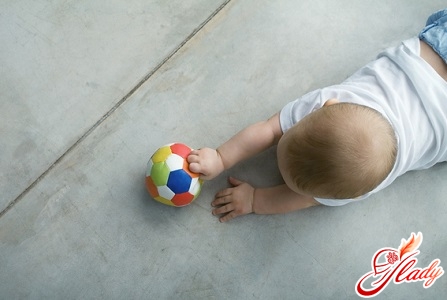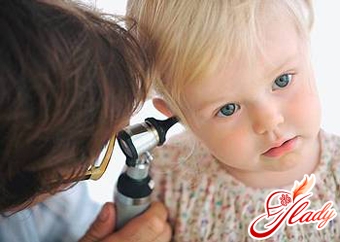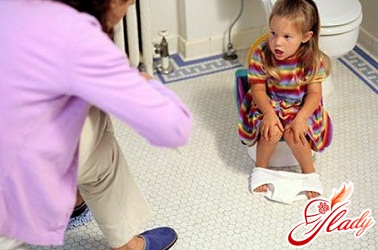 Every child is for his parentsthe real center of the universe, especially in the first year of life. The slightest changes are noted - how many centimeters have grown, how many grams have gained, what has learned. Moreover - all these changes are not just monitored, but jealously compared with the same indicators of other babies. Most of all, parents worry that their child does not lag behind his peers in anything. By the way, this is not quite the right approach - each child is a unique personality, unlike anyone else. So it is quite stupid to measure all the little ones with the same ruler. However, certain standards of child development do exist - and if your baby really does not fit into them, you need to be wary. But only be wary, and do not panic - only a pediatrician can really assess the situation. Therefore, seek help from a specialist, and do not draw erroneous conclusions. Today we will tell you about the development of a 4-month-old baby - because it is at this age that the first active phase of growing up begins. Believe me - you, dear parents, will definitely not be bored. And not only this month, but for the next 18 years for sure.
Every child is for his parentsthe real center of the universe, especially in the first year of life. The slightest changes are noted - how many centimeters have grown, how many grams have gained, what has learned. Moreover - all these changes are not just monitored, but jealously compared with the same indicators of other babies. Most of all, parents worry that their child does not lag behind his peers in anything. By the way, this is not quite the right approach - each child is a unique personality, unlike anyone else. So it is quite stupid to measure all the little ones with the same ruler. However, certain standards of child development do exist - and if your baby really does not fit into them, you need to be wary. But only be wary, and do not panic - only a pediatrician can really assess the situation. Therefore, seek help from a specialist, and do not draw erroneous conclusions. Today we will tell you about the development of a 4-month-old baby - because it is at this age that the first active phase of growing up begins. Believe me - you, dear parents, will definitely not be bored. And not only this month, but for the next 18 years for sure.
Physical changes of the baby
The 4 month old baby is not at all like that anymorethe little screaming bundle that was solemnly handed to dad on the steps of the maternity hospital - this is already a real person. His body undergoes a whole series of significant changes:
- Eyes and hair
A baby can be born with absolutely anyhair - long or short, straight or wavy, light or dark. But in any case, these hairs are a temporary phenomenon and by 4 months they will be replaced by others. Moreover, the structure of the hair or its color can be radically different from those that were at birth, so do not be surprised by such radical changes. The same applies to the color of the eyes - as a rule, almost all babies have fairly light eyes at birth, even if both mom and dad have brown eyes. But by about 4 months, the color changes, sometimes also very radically. However, it is worth noting that even now the color is far from final - changes can occur up until the child is one year old.
- Spring
Despite the fact that the fontanelle is not yet fully openclosed, it is much smaller in size. Remember that there is no bone tissue yet - be especially careful, protect your baby from head injuries. However, this applies, of course, not only to babies. In addition, do not forget about the need to maintain careful hygiene of the fontanelle.
- Body mass
In the first year of life, one of the most importantindicators that doctors closely monitor is the baby's weight gain. In the fourth month of life, the daily weight gain should be about 20 grams per day. Accordingly, by the end of the fourth month, the total gain should be about 700 grams.
- Circumference of head and thorax
In addition to body weight, the following indicators are taken into account:as chest and head circumference. In 4-month-old boys, the head circumference is approximately 42 centimeters, and the chest is 43 centimeters. Girls, as a rule, are more petite - their head circumference rarely exceeds 41 centimeters, and the chest circumference is no more than 42. Of course, these figures can fluctuate, sometimes very much, but in any case, the chest volume should not be less than the head volume.
- Vision
A child's vision is already much better at 4 months— he sees clearly at a distance of about 30 centimeters. Not so long ago, each eye of the child moved on its own, but now they move synchronously. It is easy to check this - take any bright toy that attracts the baby's attention, place it at a distance of 30 centimeters from the baby's eyes. Normally, the baby should catch it in his field of vision and focus his gaze on it. Of course, if the toy interests your baby. Then start moving the toy - to the right, down, up, left - the baby's eyes should no longer squint. Otherwise, immediately tell your pediatrician about the problem. By the way, doctors say that it is in the fourth month of life that a child begins to see the world in all its colors. Few people know, but a newborn baby perceives all colors as shades of white and black. That is why 4-month-old babies begin to be so actively interested in colored things.
- Physical activity
By the end of the fourth month of life, the baby is veryconfidently holds his head even when lying on his stomach. And even when lying on his back, raising his head to reach and examine his feet is no longer a problem for the little hero. The little fidget's head is rarely motionless - the baby willingly turns it from side to side, examining such an unknown and terribly interesting world around him. At four months, the baby can no longer be left on the sofa or an adult bed without supervision - the child begins to independently roll over from his back to his stomach and back. If your baby does not yet show such activity, you can try to help him. Turn the baby over on his back, very carefully take him by the hand and help him turn over. But be careful - no sudden movements! Do this exercise several times a day and in a few days the baby will understand what's what and will begin to roll over on his own. Moreover, at first the child most often turns only on one side - this often worries parents. In fact, there is no need to panic - this is a completely physiological phenomenon that will disappear very soon. In order to force the child to turn over to the other side, put the baby's favorite toys on that side.
- Coordination
The coordination of a 4 month old baby is rapidlyis improving - the child is quite capable of reaching out and taking the thing that interests him. Parents should remember this and not leave unnecessary things near the baby. Otherwise, one day you will find your mobile phone or TV remote control in the baby's mouth - after all, he is still trying absolutely everything with his teeth. The most favorite pastime of a child in the fourth month of life is to wave a rattle, closely following it with his eyes. Or bend and straighten the legs, as if in the exercise "bicycle". By the way, at rest, the child most often keeps his legs bent at the knees. If you put the baby on his feet, he will begin to squat - a couple of minutes of such exercises a day perfectly develop and strengthen the leg muscles. However, you should not overuse them - muscle overload is absolutely not necessary for a child.
- Other features
Sometimes parents worry about what is happeningDuring gymnastics, you can hear cracking in the knee and elbow joints. There is no need to be afraid of this - this is a completely normal process, typical for all children. And this cracking is associated with the immaturity of the musculoskeletal system - in about two or three months the crunching will stop. In the meantime, continue doing gymnastics, massage and everything will be fine. Another question that worries parents - is it possible to start seating a child in pillows? And this is good, because many mothers and fathers begin to seat the child without even thinking about whether they are harming him. The baby is delighted, the mother has a few free minutes - everyone is happy! However, doctors say that this should never be done! Early seating can cause irreparable harm to the baby's health - The baby's back muscles are very weak and simply cannot support the body weight, and the spine is immature and the vertical position does not have the best effect on its condition. You do not want to harm your baby, do you? So, wait a couple of months - believe me, they will fly by very quickly.
Speech development of the child
Already at 4 months the baby shows active behaviordesire to communicate with adults - he begins to coo in response to an appeal to him, and quite a lot of sounds already slip through. Even crying becomes different - not monotonous, but with a lot of emotional shades. And it is very important to talk to the child. Although, of course, he will not yet understand the meaning of your words, but even infants perfectly grasp the emotional coloring. Tell the baby about what you are doing at the moment, what is happening around, how much you love him - all this will become the basis for his future vocabulary. Psychologists have noticed one pattern - those children with whom parents often and a lot, and themselves begin to speak very early. So do not be lazy and contribute to the development of your baby. Remember that children at 4 months are very sensitive to all sounds without exception, even quiet ones. And there is no need to talk about screaming - watch your emotions in the presence of the child, if you do not want to scare him. The same applies to loud sounds - falling objects, slamming doors, loud music. By the way, speaking of music - almost all children love calm, quiet music. Oddly enough, but most of all they like not children's songs, but classical instrumental compositions. Many mothers and fathers take advantage of these musical preferences of the child - as soon as you turn on the music, the baby immediately stops being capricious. Sounds of living nature have approximately the same effect - to them the child in most cases falls asleep sweetly. In addition, psychologists are sure that the development of a child who is regularly played music is much more harmonious. So, dear parents, do not be lazy - study the musical preferences of your young music lover and pamper the child more often.
First teeth of crumbs
In the vast majority of cases, the first teethappear at the age of 5-6 months. But there are also such teeth-hurryers that make themselves known by the end of the fourth month. Of course, this process cannot but affect the well-being and behavior of the child. There are a number of signs by which parents can assume that the child has started teething.
- The child worries, cries for no apparent reason.
- The kid became much more likely to wake up at night.
- A crumb actively pulls his hands and everything that gets into them, in the mouth.
- Clearly pronounced salivation.
In addition, often during the period a childteething problems with digestion begin, a cold may appear, the temperature may rise. Of course, despite popular belief, these ailments are not directly related to teething. But the immune system is significantly weakened - hence the various diseases. Of course, the teething process is different for all children - it all depends on the individual characteristics of the child's body. Do you suspect teething? To confirm your guess, look into the baby's mouth and examine the gums. In the place where the tooth will appear soon, the mucous membrane is red and there is a pronounced swelling. Although sometimes there are partisan teeth that appear without any previous signs, this happens extremely rarely. Parents are quite capable of alleviating the child's condition during this difficult period for him. First, be sure to buy special teething rings filled with liquid inside. Before giving them to your baby, keep them in the refrigerator for a while so that the liquid cools down - but don't go overboard, your baby doesn't need a cold. In addition, don't forget about special gels that soothe the gums - relieve itching and reduce pain. They are very easy to use - just rub the gel into your baby's gums with a clean finger and you'll have a few hours of peace. It's easy to get confused in a pharmacy - there are a lot of different gels. But in principle, they are all the same, the only difference is in the manufacturer. So choose according to your financial capabilities, there won't be any difference anyway.
Feeding the baby
In order for the development of a 4 month old babywas correct, his nutrition should be complete. The most ideal option for such a baby is mother's milk. Firstly, it contains all the nutrients necessary for the child's physical development to be normal. But we must not forget about spiritual development - and breastfeeding directly affects it. Breastfeeding is more than just satisfying the child's vital needs, it is an act of tenderness, love, a guarantee of future mutual understanding. You hold the child in your arms, talk to him affectionately, he feels your breathing, hears your heartbeat, feels the tenderness of your hands. This is also useful for older children, and for a 4-month-old baby it is absolutely necessary. Numerous studies suggest that breastfeeding has the most beneficial effect on both the physical and emotional development of the child. Unfortunately, it is during this period that women most often experience a significant decrease in lactation. And, as a result, they refuse breastfeeding in favor of formula. But in most cases this can be avoided - a decrease in lactation in the fourth month of breastfeeding occurs in all women without exception. But if the mother does not stop feeding the baby, literally in a couple of weeks the situation will stabilize. A child at this age should eat about 6 times a day if he is fed with formula. Well, if you have continued breastfeeding, you will not have to keep track of the time - the child himself will say that he is hungry. The average portion of a baby is about 180 grams. Although, of course, all children are different - some eat with great desire, and someone can not be forced. At the end of the fourth month is the time to introduce the first vegetable complementary foods. But before this, be sure to consult with your local pediatrician - Perhaps the particular health characteristics of your baby will not allow you to introduce the first complementary food right now. In addition, the doctor will be able to advise you on what exactly should be used as the first complementary food. Do not forget to carefully observe the baby - if you notice indigestion, difficulty breathing, skin rashes, stop complementary feeding and immediately consult a doctor.
Sleep of the child
Normal development of a child is simply impossiblewithout proper sleep, and such a baby needs to sleep a lot and a lot. Healthy sleep promotes the maturation of the nervous system, strengthening the immune system. If the child's sleep is disturbed, it will be hard for both him and his parents. At night, the child wakes up much less often - no more than two or three times and then for feeding, sleep becomes deeper. Ideally, the child should fall asleep at about 10 pm and wake up at 7 am. By about 11 am, the baby will fall asleep again and sleep for several hours, and the mother will have the opportunity to do her own things. The baby's second daytime sleep is about five o'clock in the evening and it also lasts two or three hours. But, of course, these are only general recommendations - parents should focus primarily on the biological rhythms of their child. Signs of fatigue that will tell the mother that the child is tired and wants to sleep are very obvious - the baby starts to rhythmically shake his head, yawn, rub his eyes, suck his finger and act up. Put the baby in the crib immediately - if the baby stays awake for too long, it will be much harder for him to fall asleep. And all this will eventually result in a huge scandal. In order for your baby to sleep soundly, it is important to follow a few simple rules:
- Air temperature
Almost all parents are afraid of colds, soThey try not to open the window unnecessarily, and they also try to cover the child up warmer. However, this is the worst solution. If the child is hot, there can be no talk of any peaceful sleep - the child will constantly wake up and be capricious. That is why it is imperative to check the room before going to bed. If you are so afraid of drafts - go out with the baby into another room for a while, or even better, go for a walk. A nap before bed is very, very useful! Not only the baby will sleep sweetly, but you too! You should not cover the child with a blanket that is too warm - at an air temperature of 20 degrees, a thin flannel one is enough.
- Baby bed
Before putting your baby in the crib, carefullyinspect it - there should be no folds, crumbs or toys on the sheets and diapers. The baby's bed linen should be made exclusively from natural materials - the same applies to children's clothing. Whether to use diapers - it's up to you to decide. Some people believe that diapers are extremely harmful to health, although doctors say this is not true. But in any case, babies sleep much more soundly in diapers - of course, because wet diapers do not bother them. By the way, about the crib - very often parents put off buying a crib for later, and at first the child sleeps in a stroller. So - this is far from the best option - after all, an orthopedic mattress is definitely better than a thin stroller mattress. And do not forget that your baby will very soon become quite active and will be able to tip over the stroller. Of course, during the day the child is under your supervision and this will not happen. But what if the child wakes up at night?
- Environment
Unlike Europe, we have a baby in theA separate room sleeps quite rarely - almost always the baby's crib is next to the parents'. Of course, this is quite convenient, but only for the mother. Your conversations, the sound of the TV, even if it is muted, the light - all this does not have the most favorable effect on the quality of the baby's sleep. Yes, at first glance it may seem that the child is sleeping peacefully, not paying attention to external stimuli. But in fact this is not so - the quality of the child's sleep deteriorates significantly. Therefore, try to exclude them - put the crib in the quietest and darkest area of the room, try not to make much noise.
Visit doctor
During the first year of life, all childrenregularly, monthly, visit a doctor - the fourth month is no exception. Your local pediatrician will measure the child's height, determine the weight, psychophysical development indicators, and assess the state of health. A conversation with the mother is no less important - the doctor will learn the peculiarities of the life of his little patient, give the mother the necessary recommendations, which will never be superfluous. Be sure to discuss the following important points with the doctor:
- Your child's day schedule.
- Introduction of the first complementary foods - quantity, products, possible reactions of the body.
- Features of the vaccination calendar.
- Ask your doctor any questions you are interested in.
Very often parents ignore such thingspreventive visits to doctors - they say, the child is healthy, there is no point in going to the clinic, he will still catch something there. In principle, in such a case, the doctor is obliged to come to the child's home, but alas, due to negligence or a lack of medical personnel, this almost never happens. And as a result, there is a risk that this or that problem remains unnoticed. And if this health problem is serious? Can you imagine what all this can turn into? Therefore, do not play with fire and be sure to visit the pediatrician in a timely manner. Remember that the doctor cannot perform any manipulations with your child without your consent. So do not worry - you will have the situation under control. That's basically all we wanted to tell you about. Perhaps this is not your first baby and you are quite an experienced mother, but nevertheless, we hope that you have found something useful for yourself. After all, all children are different and it is difficult to predict how your little one will grow. Well, in principle, it doesn’t matter - the main thing is that he grows up healthy and happy.









